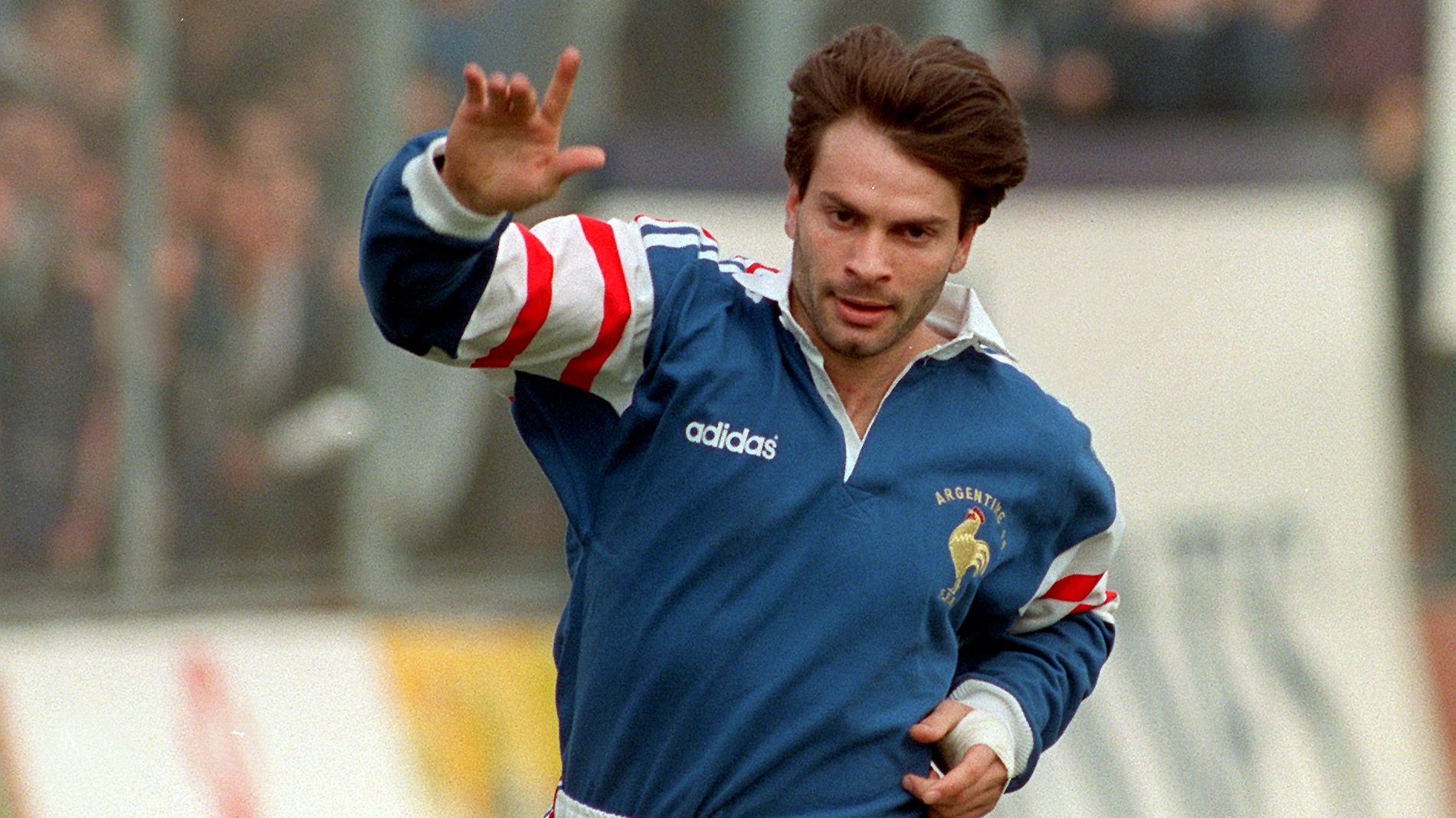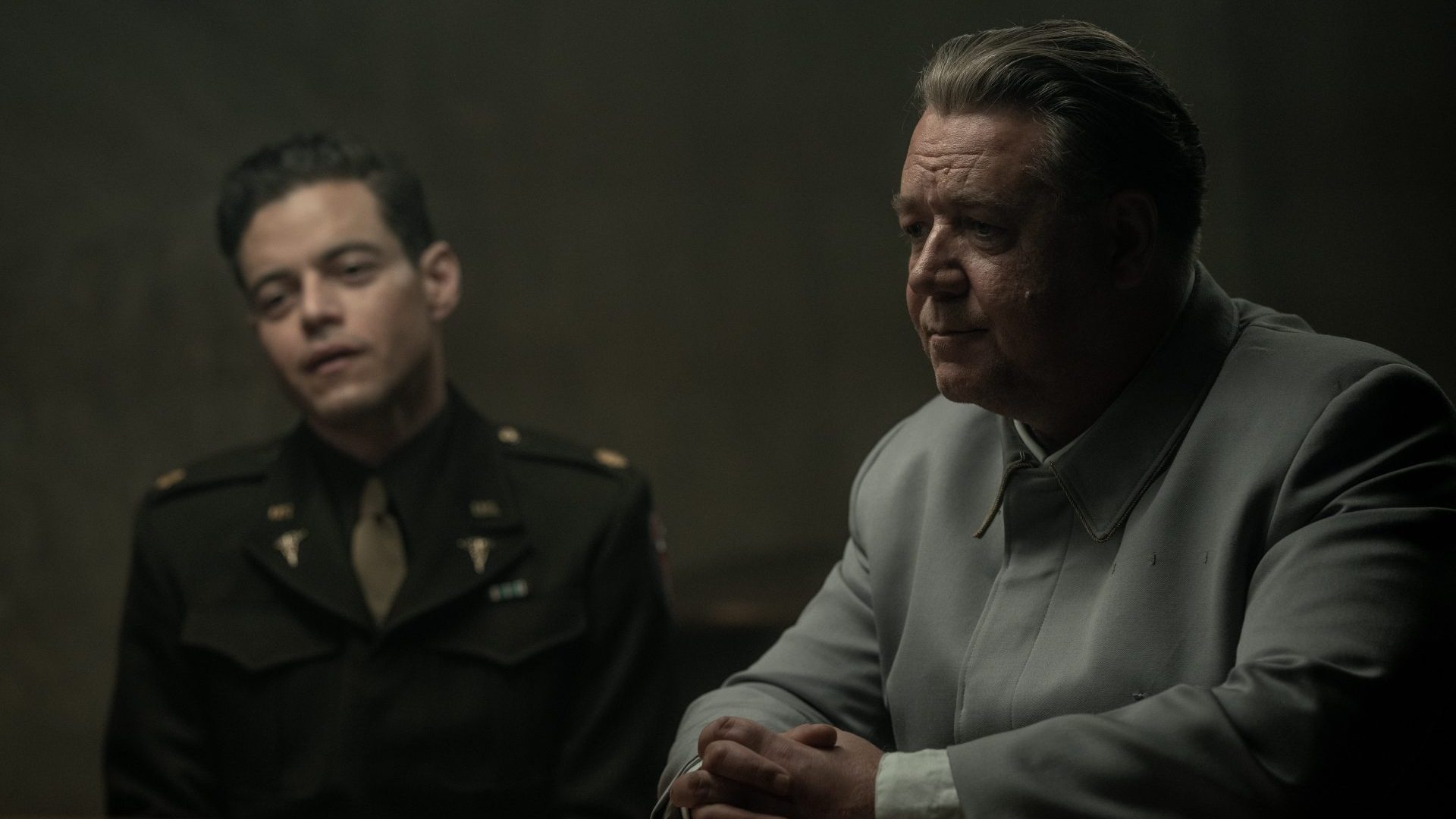It was time for the All Blacks to become world champions again. Inaugural winners of the Rugby World Cup in 1987, a team featuring greats like Jeff Wilson, Josh Kronfeld, Tana Umaga and Jonah Lomu were favourites to go all the way 12 years later. In the semi-final, they simply had to see off unconvincing France – who they had put 50 points past four months earlier – to set up a first-ever Australia-All Blacks final.
That things mightn’t be as straightforward as some had expected became apparent 20 minutes in when, with the score 6-3 in the All Blacks’ favour, a little bloke called Christophe Dominici sprinted from the halfway line into the opponents’ 22 almost effortlessly. Such was the chaos the winger had created, fly-half Christophe Lamaison had an easy passage to the line.
Stung into action, New Zealand stormed back to lead 24-10 at half-time. It just remained to be seen how many points they could score on the inevitable road to victory.
Then the tide turned. First up, Lamaison – a man famous for freezing in big matches – set about enjoying the game of his life with a try, two drop-goals, three penalties and four conversions.
But if he changed the scoring trend, Christophe Dominici irresistibly reversed the momentum. “He was the detonator, the decisive factor in that match,” said France’s then-manager Jo Maso. “He had a fantastic sidestep and one-on-one he could beat anyone.”
With the score at 24-22, French skipper Fabien Galthié speculatively chipped the ball down the left touchline. Kiwis Taine Randell and Andrew Mehrtens looked to have things covered.
But as his pace left Randall for dead, Dominici’s ability to pick up the ball while in the process of accelerating past Mehrtens resulted in a converted try to take a five-point lead. Two more and the French were heading to the final, led by their diminutive destroyer.
That the triumph at Twickenham wasn’t repeated a week later in Wales broke Christophe Dominici’s heart. Disappointments, however, weren’t uncommon throughout his life. Nor was depression. Indeed, a year to the day after his Twickenham heroics, he was placed in an induced coma to counteract the effects of that and nervous exhaustion.
“I couldn’t sleep any more,” Dominici said in 2003. “I had no appetite for life. When you are hungry, you want to devour life, but I’d lost that desire. I had been overtaken by emotion and stress, but I didn’t want to take medicine so that was the only solution.”
Dominici’s mental health struggles dated back to a difficult childhood, In his memoir Bleu à l’âme (Blue at Heart), Christophe – born in rugby-mad Toulon in 1972 – writes about years of bullying and abuse. When, in 1986, his elder sister Pascale died in a car accident, he was inconsolable.
Sport provided Dominici with an escape, and his pace and ferocity made him perfectly equipped for rugby union. In 1997, he joined Stade Français Paris, whose chairman had a vision of making the unfashionable side champions, and an innovative way of gaining publicity.
“At the beginning, we played before 2,000 people,” Dominici said. “And then the club opened its doors to a new public, namely thanks to that ‘Stade Gods’ calendar, which showed players undressed… That changed people’s perception of us.”
Perhaps because of the endless questions about his size, the 5ft 7½in frame, Christophe Dominici enthusiastically appeared in all eight editions of the bestselling calendar. Our man was also rather taken with Stade’s commitment to playing in pink: “The first match we wore pink, we were treated to whistles and jeers. And then, gradually, the jersey came to be accepted and even acclaimed by those who’d whistled at us!”
In addition to breaking barriers, Dominici’s time at Stade saw him secure the first silverware and international recognition of his career. During his 11 years there, he’d become a five-time winner of the Top 14, the biggest prize in French club rugby. For his country, he won 67 caps, scored 25 tries, and won the Six Nations three times, including a Grand Slam in 2004.
In three World Cups, even when on the bench, he could have a huge impact on proceedings. Take the speech he gave prior to the 2007 quarter-final. “It will be hard, but hard we know,” he bellowed as his teammates readied themselves for another All Blacks showdown. “Friends, it’s good when it’s hard, it’s good… We’re here, alone. Forty men. Forty friends, alone. Alone!” The 40 lonely Frenchmen duly defeated New Zealand again.
A year later, Dominici hung up his boots to take up a coaching position at Stade. It proved a poor substitute for playing, as did periods as a TV pundit, a 2012 stint on the French version of Strictly and a role in a telemovie.
Only a financial bid for struggling club side Béziers really excited him. When that fell through in early 2020, Dominici’s mood darkened for the final time. On November 24 he threw himself from the roof of a building in Saint-Cloud in the Parisian suburbs. He died from his injuries shortly afterwards.
Given their shared history, it’s rather fitting that the All Blacks were among the first to pay tribute to Christophe Dominici. A message from the team said: “Small in stature but a titan on the field… we will never forget you.”




